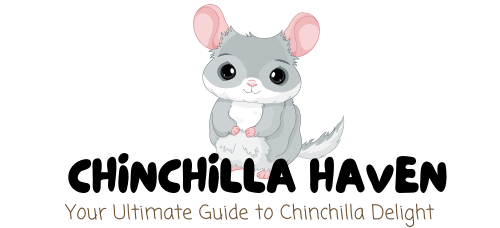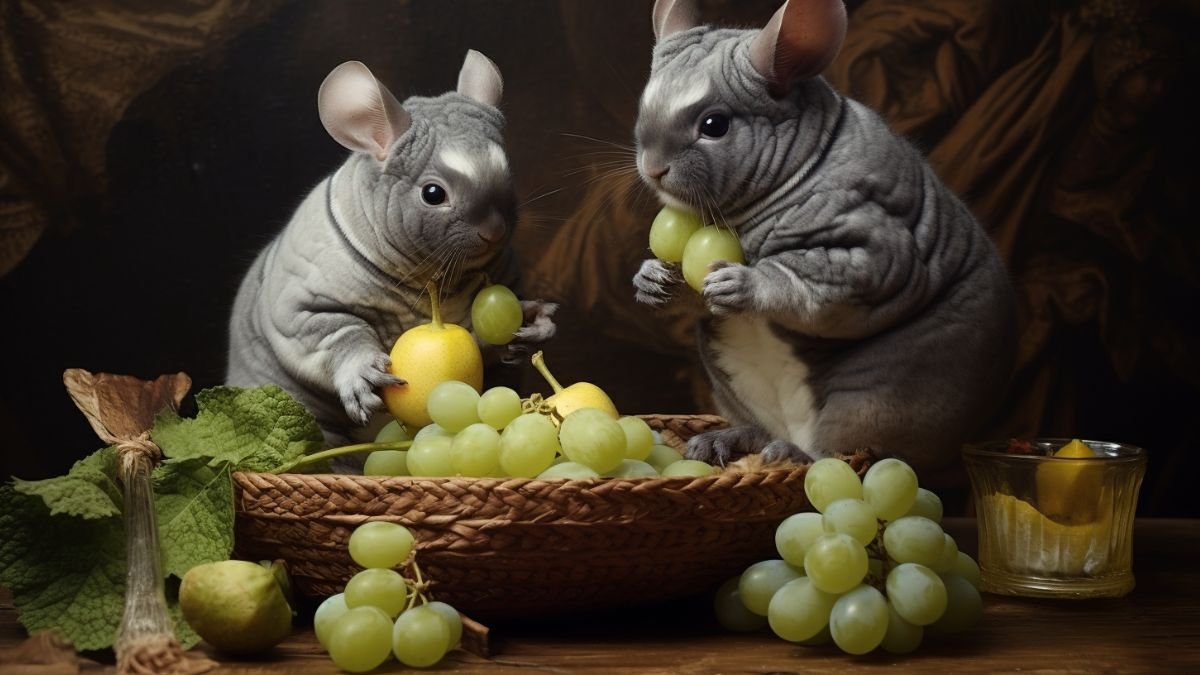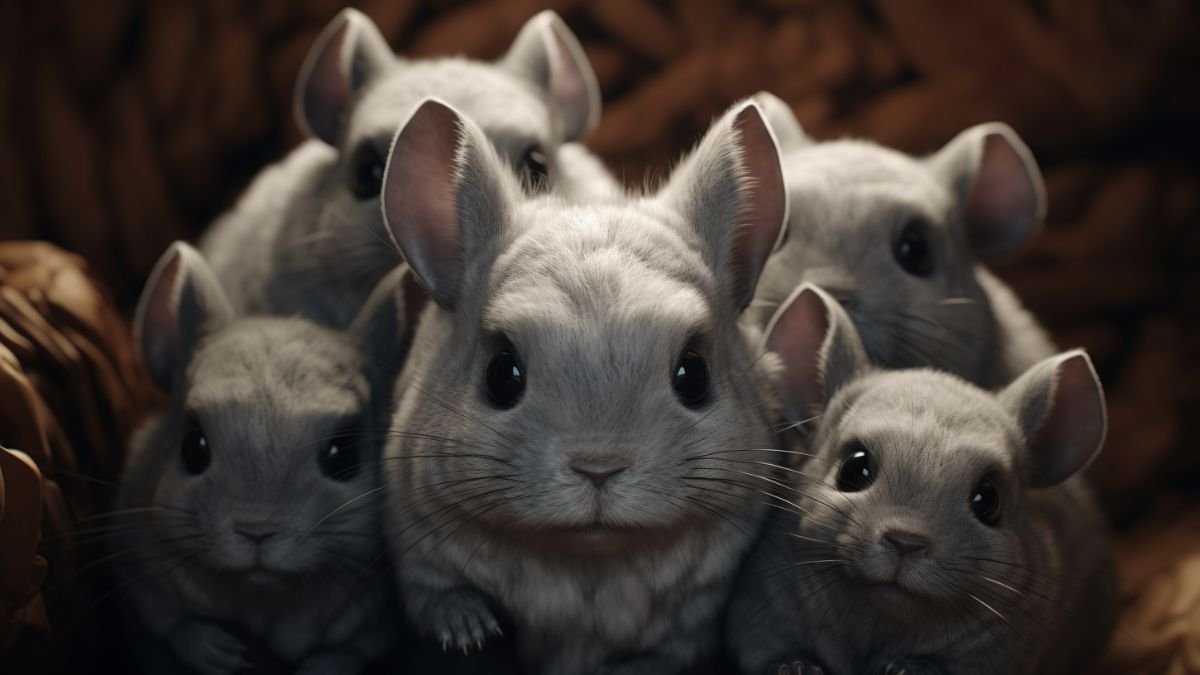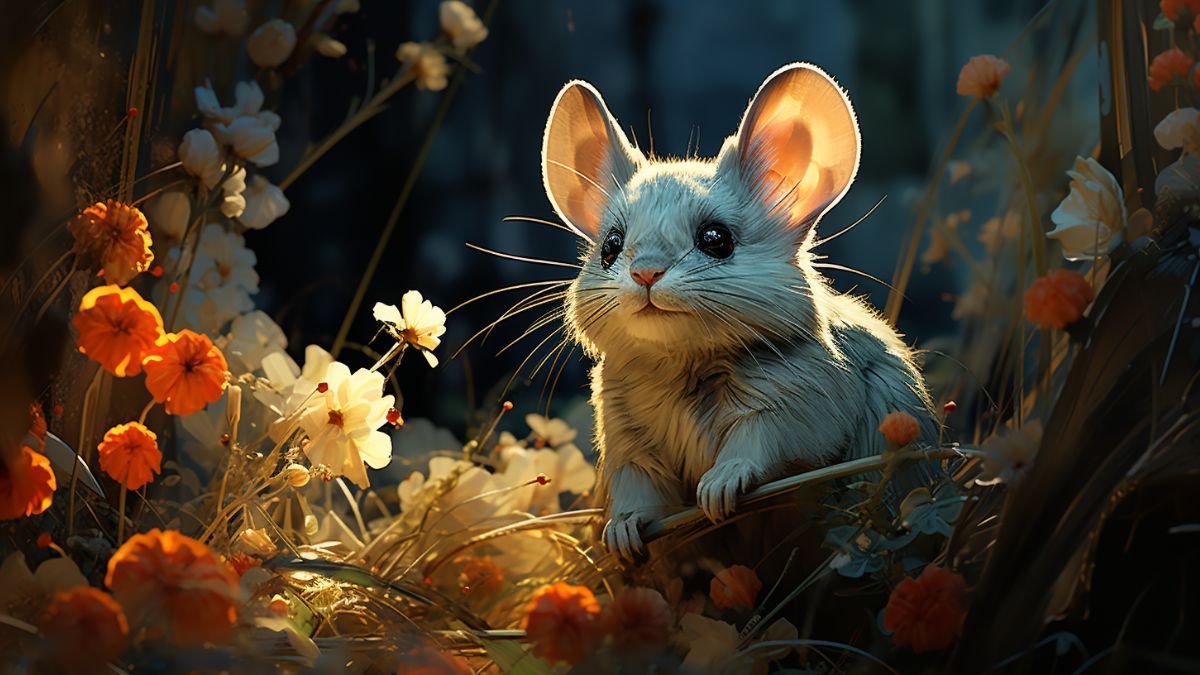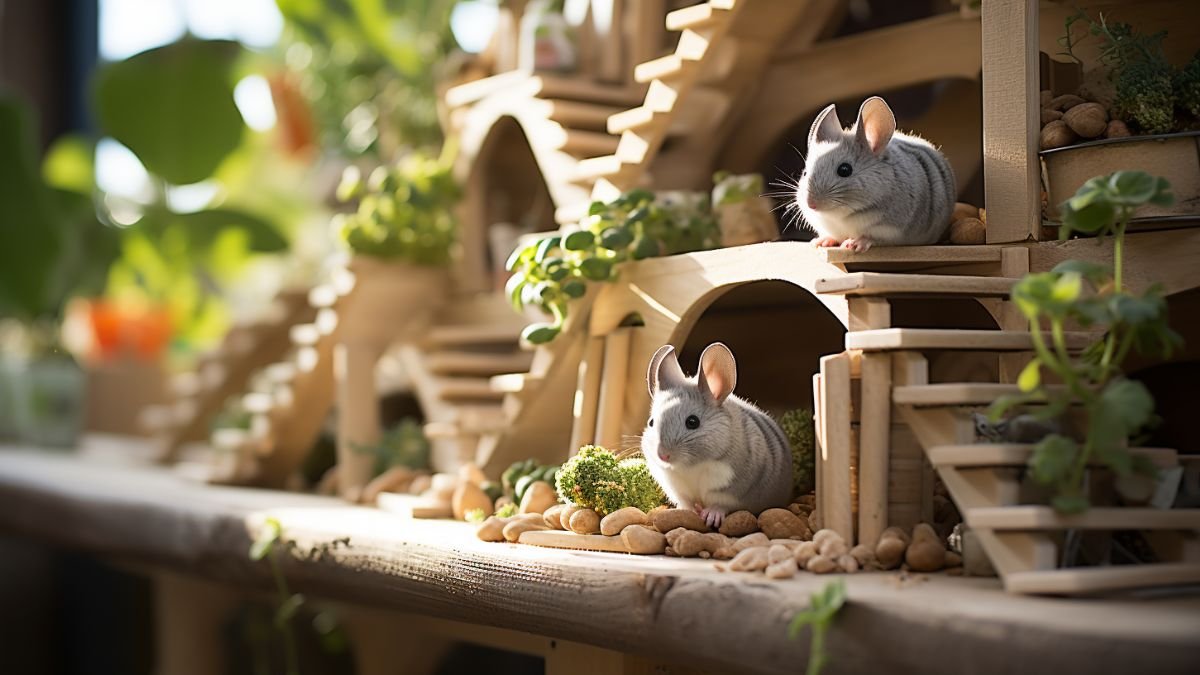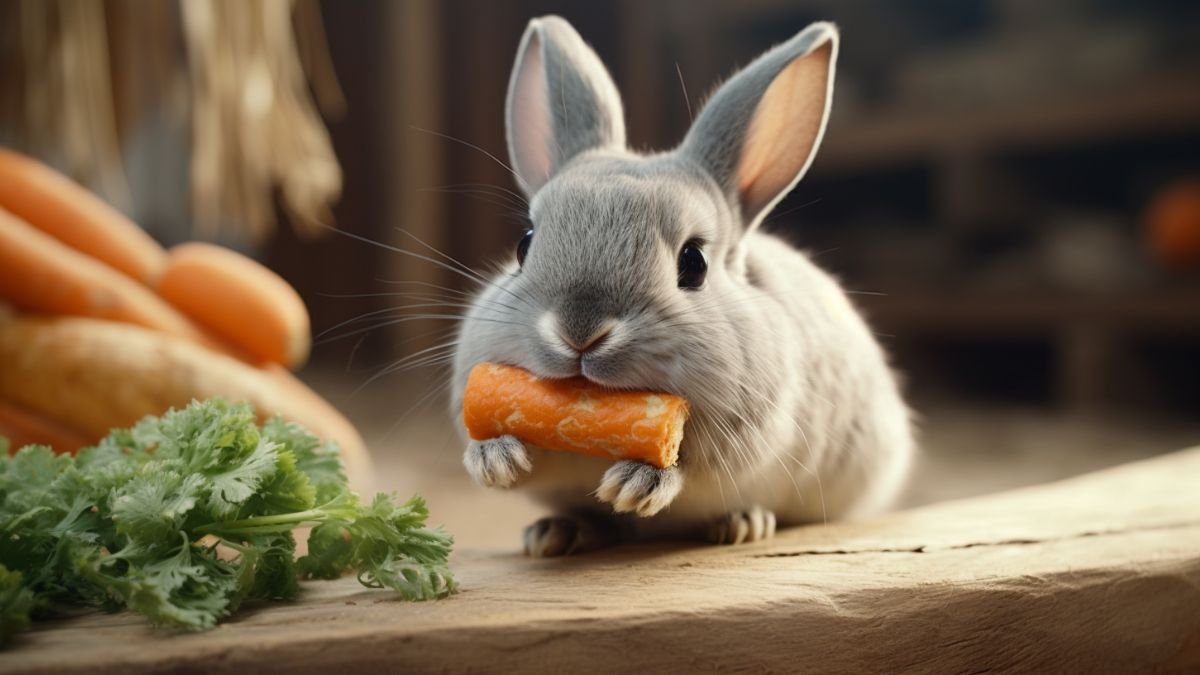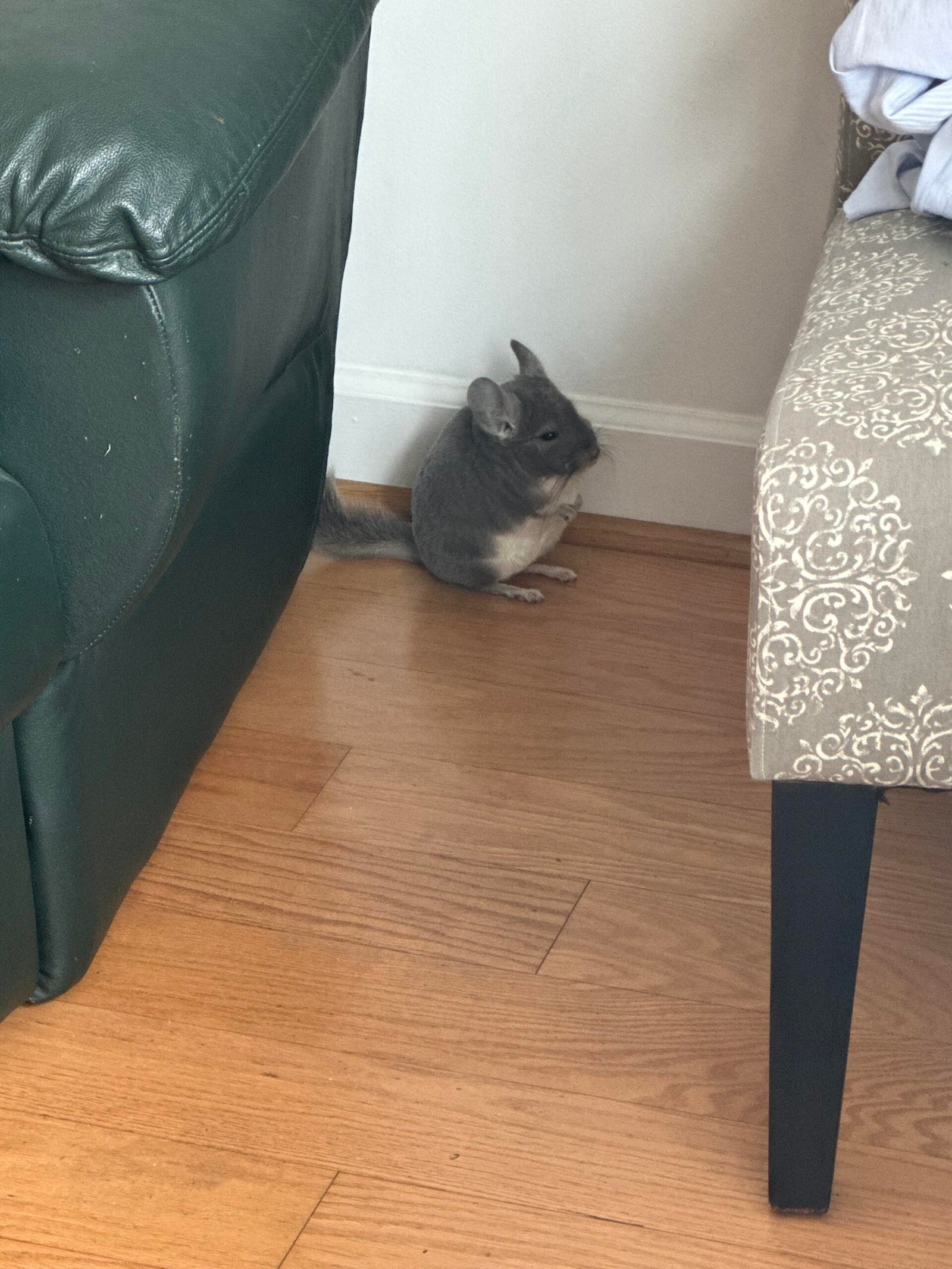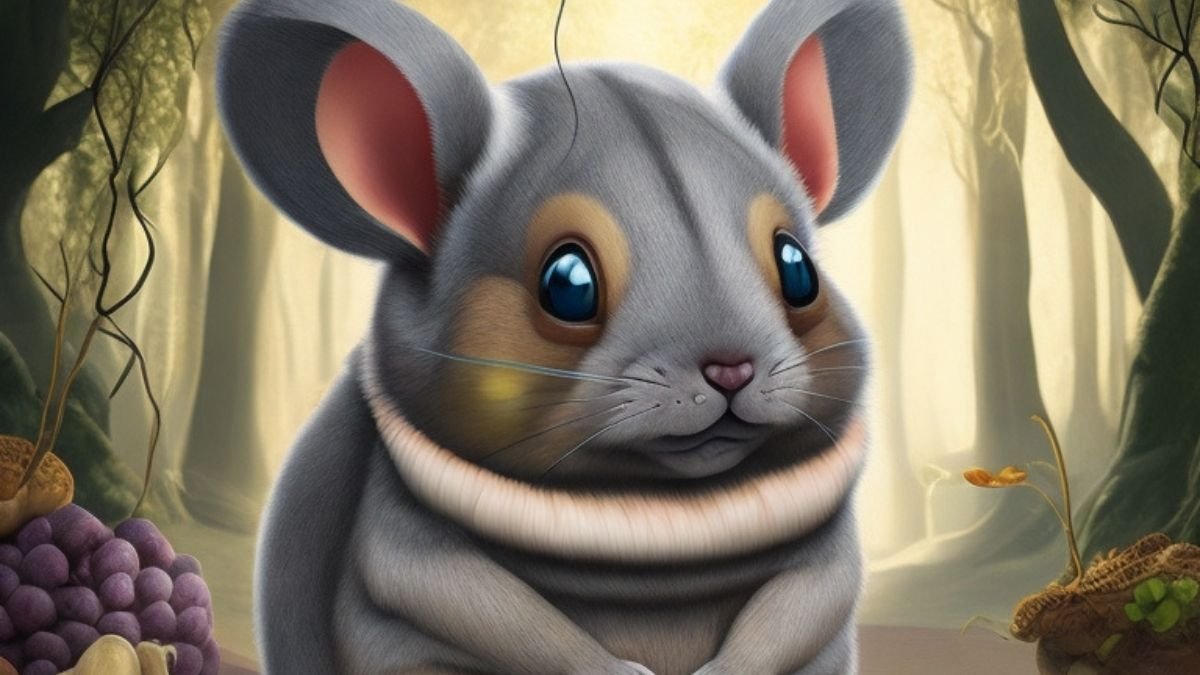
Are you curious about what chinchillas should avoid when it comes to their diet? It’s essential to know what these adorable furry creatures can’t eat to ensure their health and well-being. In this article, we’ll explore the foods that are off-limits for chinchillas.
Firstly, let’s talk about fruits and vegetables. Although they are generally healthy for humans, some fruits and vegetables can be harmful to chinchillas. For instance, citrus fruits like oranges and lemons are too acidic for their sensitive digestive systems and may cause stomach upset. Avocados, while considered a superfood for us, contain a substance called persin that can be toxic to chinchillas. Additionally, onions and garlic should be avoided as they can cause anemia in these small mammals.
When it comes to treats, steer clear of sugary and fatty foods. Chinchillas have delicate metabolisms and are prone to obesity and diabetes. So, avoid giving them sweets, chocolates, or any processed snacks meant for human consumption. High-fat foods like nuts, seeds, and dairy products should also be kept off their menu.
Hay is a staple in a chinchilla’s diet, but not all types are suitable. Avoid feeding your chinchilla alfalfa hay, as it is too high in protein and calcium, which could lead to urinary problems. Timothy hay, on the other hand, is an excellent choice for their overall dental and digestive health.
It’s crucial to emphasize that water is vital for chinchillas’ well-being. However, certain drinks such as soda, fruit juices, and milk are unsuitable for them. These beverages can upset their stomachs and cause serious health issues.
To sum it up, chinchillas cannot eat citrus fruits, avocados, onions, garlic, sugary treats, fatty foods, alfalfa hay, soda, fruit juices, and milk. Restricting their diet to chinchilla-specific food and timothy hay will help maintain their optimal health and ensure a long and happy life.
Remember, always consult with your veterinarian for specific dietary recommendations and guidelines tailored to your chinchilla’s individual needs. By providing them with a balanced and appropriate diet, you’ll be keeping your furry friend healthy and content.
Toxic Foods for Chinchillas
Are you wondering about the potential dangers lurking in your chinchilla’s diet? It’s essential to be aware of what foods may be toxic for these adorable little creatures. While chinchillas have specific dietary requirements, there are certain foods that should be avoided at all costs. In this article, we will explore the world of toxic foods for chinchillas, ensuring that you keep your furry friend safe and healthy.
One food that is particularly harmful to chinchillas is chocolate. We humans may find it irresistible, but for chinchillas, it can be deadly. Chocolate contains theobromine, a compound that is toxic to these small pets. Even a small amount of chocolate can lead to severe health issues, including heart problems or even death. So, remember to keep those tempting chocolate treats far away from your chinchilla!
Another food to avoid feeding your chinchilla is anything with caffeine. Just like chocolate, caffeine can have detrimental effects on their well-being. Caffeine stimulates the nervous system, leading to increased heart rate, restlessness, and other adverse reactions. It’s best to keep caffeinated beverages, such as coffee or tea, away from your chinchilla’s reach.
Onions and garlic are widely used in human culinary delights but should never find their way into a chinchilla’s food bowl. These aromatic vegetables contain compounds that can cause digestive issues and damage red blood cells in chinchillas. It’s crucial to steer clear of any dishes seasoned with onions or garlic when considering what to feed your beloved pet.
While fruits are generally considered healthy, certain ones can be problematic for chinchillas. Citrus fruits, such as oranges, lemons, and grapefruits, are highly acidic and can upset your chinchilla’s delicate digestive system. Avoid giving them these fruits, opting for safer alternatives like apples or pears instead.
being aware of the toxic foods for chinchillas is vital for maintaining their well-being. Avoid feeding them chocolate, caffeine, onions, garlic, and citrus fruits to prevent any potential health complications. By providing a safe and suitable diet, you can ensure that your chinchilla lives a happy and healthy life by your side.
Harmful Substances to Avoid Feeding Chinchillas

Are you aware that some substances can be harmful to your adorable chinchilla? As a responsible chinchilla owner, it’s crucial to understand which substances can pose a danger to your furry friend. In this article, we’ll delve into the harmful substances you should avoid feeding your chinchilla, ensuring their health and well-being.
First and foremost, let’s talk about high-sugar foods. Chinchillas have delicate digestive systems that aren’t designed to handle excessive amounts of sugar. Feeding them sugary treats like candies or chocolates can lead to various health issues, including obesity, dental problems, and digestive upset. Instead, opt for chinchilla-friendly treats like dried fruits or hay-based snacks.
Next on the list are foods that are toxic to chinchillas. These include onions, garlic, avocado, and chocolate. These innocent-looking ingredients can cause severe harm to your little friend. Onions and garlic contain compounds that can damage a chinchilla’s red blood cells, leading to anemia. Avocado contains persin, which is toxic to chinchillas and can cause digestive distress. Chocolate contains theobromine, a stimulant that is toxic to chinchillas and can harm their cardiovascular and nervous systems. Remember, it’s best to keep these foods far away from your chinchilla’s reach.
Another substance to avoid is dairy products. Chinchillas lack the necessary enzymes to digest lactose, the sugar found in milk. Feeding them dairy products can result in stomach discomfort, diarrhea, or even more serious complications. Stick to providing fresh water and high-quality chinchilla pellets as their main source of nutrition.
Lastly, let’s discuss the importance of avoiding pesticides and chemicals. Chinchillas are highly sensitive to these substances and can easily absorb them through their skin or respiratory system. Ensure their habitat is free from harmful chemicals, such as cleaning products or pesticides. Always opt for natural, chinchilla-safe alternatives to maintain a safe environment for your furry companion.
being aware of the harmful substances that can jeopardize your chinchilla’s well-being is crucial. Avoid feeding them high-sugar foods, toxic ingredients like onions, garlic, avocado, and chocolate, dairy products, as well as keeping them away from pesticides and chemicals. By providing a safe and nutritious diet, you will ensure your chinchilla lives a happy and healthy life by your side.
Chinchilla Diet Restrictions
Are you wondering about the dietary restrictions for chinchillas? Well, let’s dive into this fascinating topic and explore what these adorable furballs can and cannot eat. Chinchillas have a unique digestive system that requires a specific diet to keep them healthy and happy.
First and foremost, it’s essential to understand that chinchillas are herbivores, meaning their diet consists mainly of plant-based foods. Their digestive system is designed to process high-fiber foods, so providing them with a fiber-rich diet is crucial. Hay is the backbone of a chinchilla’s diet and should be available at all times. Timothy hay is an excellent choice due to its high fiber content and low protein levels.
While chinchillas love treats, it’s important to be cautious about what you offer them. Avoid sugary and fatty foods as they can lead to digestive issues and weight gain. Foods like chocolate, nuts, seeds, and processed snacks should never be given to chinchillas. These treats may seem tempting, but they can cause serious health problems for your furry friend.
Fresh vegetables play a role in a chinchilla’s diet, but moderation is key. Leafy greens like spinach, kale, and romaine lettuce are excellent choices. However, remember that chinchillas have sensitive stomachs, so introduce new foods gradually to avoid any digestive upset. Stick to small portions and remove any uneaten veggies after a couple of hours to prevent spoilage.
Chinchillas also require a limited amount of fruits in their diet. Offer small amounts of fruits like apples, pears, and grapes as occasional treats. Again, remember to remove any uneaten fruit to maintain cleanliness and prevent bacterial growth.
Water is another vital aspect of a chinchilla’s diet. Fresh, clean water should always be available in a water bottle or dish. Ensure that the water is changed daily to prevent contamination.
when it comes to feeding your chinchilla, prioritize a high-fiber diet with a foundation of Timothy hay. Avoid sugary, fatty, and processed foods, and opt for fresh vegetables and fruits as occasional treats. Remember to introduce new foods gradually and maintain a balanced diet to keep your chinchilla healthy and thriving.
Remember, a well-informed chinchilla owner is a happy chinchilla owner!
Dangerous Foods for Chinchillas

Are you curious about the foods that can put your chinchilla’s health at risk? Well, look no further! In this article, we will explore some of the most dangerous foods for chinchillas. It’s crucial to understand what should be kept off their menu to ensure their well-being.
Let’s start with a big red flag: sugary treats. Chinchillas have delicate digestive systems, and sugar can wreak havoc on them. Avoid feeding your furry friend any sweets, such as candy or chocolate. These sugary delights might be tempting, but they can lead to severe health issues like obesity and dental problems.
Next up are fruits with high water content, like citrus fruits. While these may seem healthy for us, they can cause diarrhea in chinchillas due to their sensitive stomachs. Stick to small portions of low-sugar fruits like apples or pears as an occasional treat.
Did you know that chinchillas cannot properly digest dairy products? That’s right – cheese, milk, or any other dairy items are a no-go for them. These can lead to gastrointestinal upset and discomfort. It’s best to avoid giving your chinchilla any dairy altogether.
Now, let’s talk about vegetables. Some veggies, such as onions and garlic, contain compounds that can be harmful to chinchillas. These ingredients can cause digestive disturbances and even damage their red blood cells. Keep your chinchilla safe by excluding these from their diet.
Lastly, nuts and seeds should be approached with caution. While they might seem like a great snack option, they can be high in fat and phosphorus. Too much fat can contribute to obesity, while excessive phosphorus can lead to urinary problems. Opt for chinchilla-specific pellets and hay as their main diet, and use nuts and seeds sparingly, if at all.
it’s crucial to be aware of the dangerous foods for chinchillas. By avoiding sugary treats, high-water content fruits, dairy products, certain vegetables, and excessive nuts and seeds, you can provide your furry friend with a healthy and balanced diet. Remember, their well-being is in your hands, so choose their meals wisely and keep them happy and thriving!
